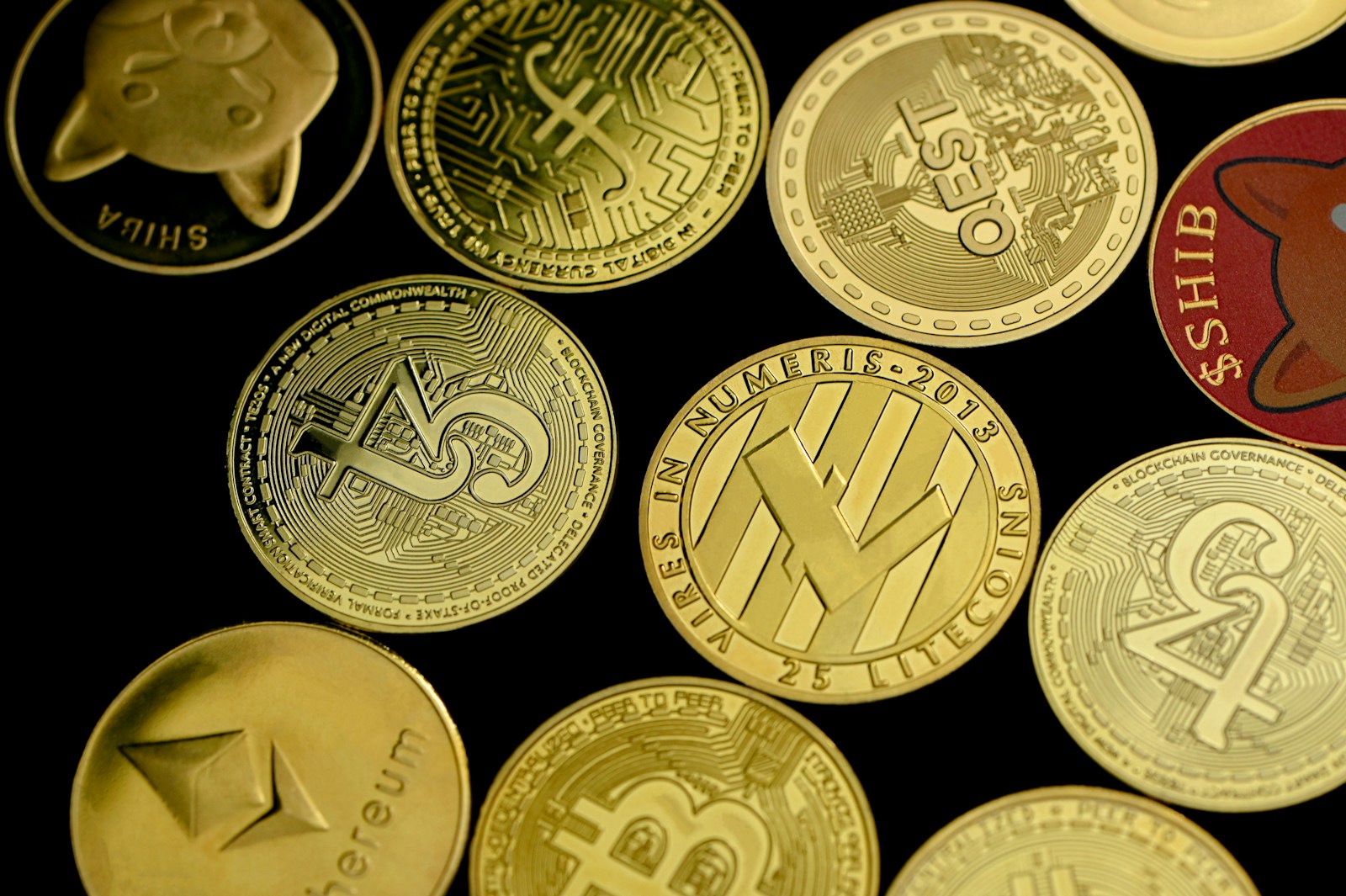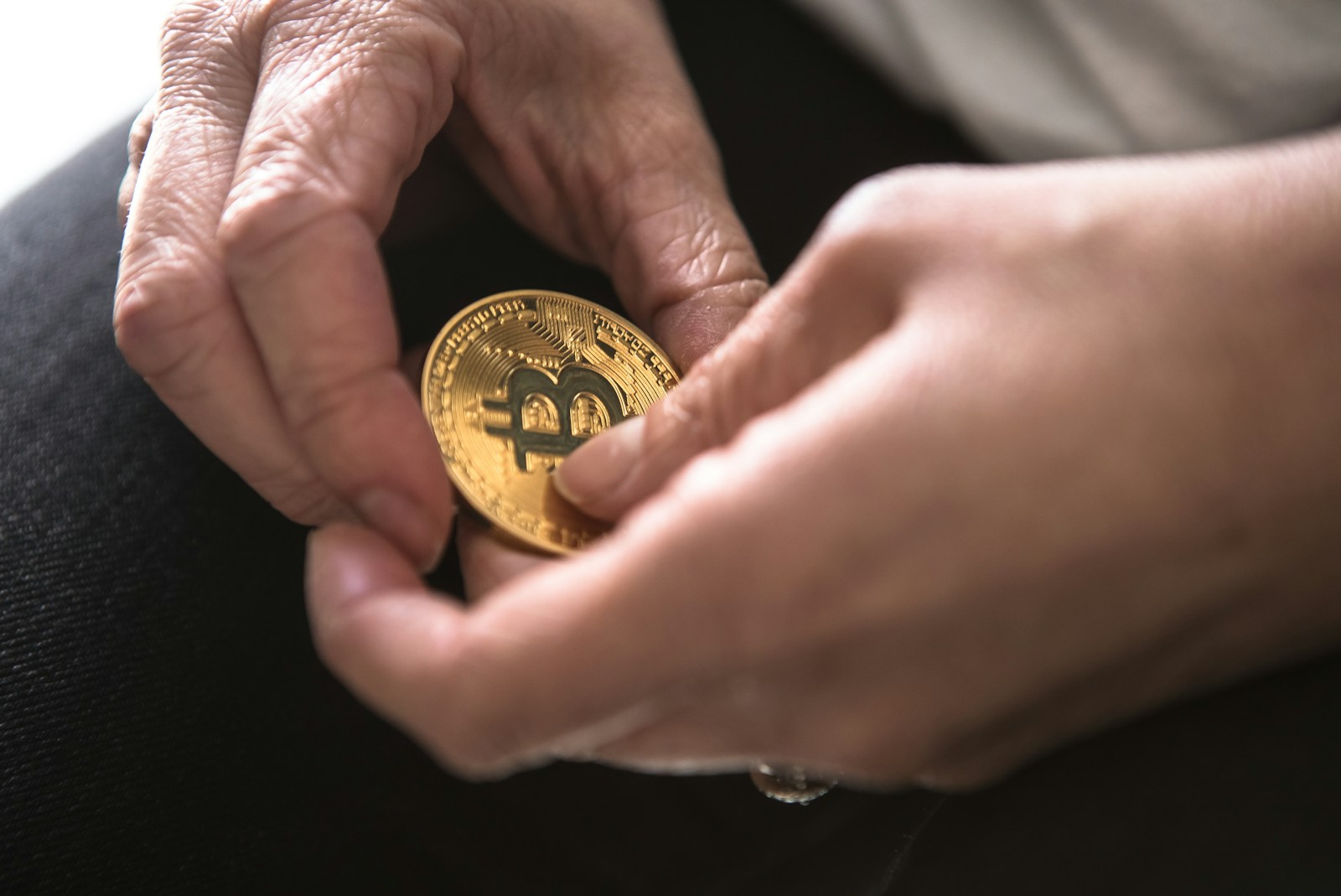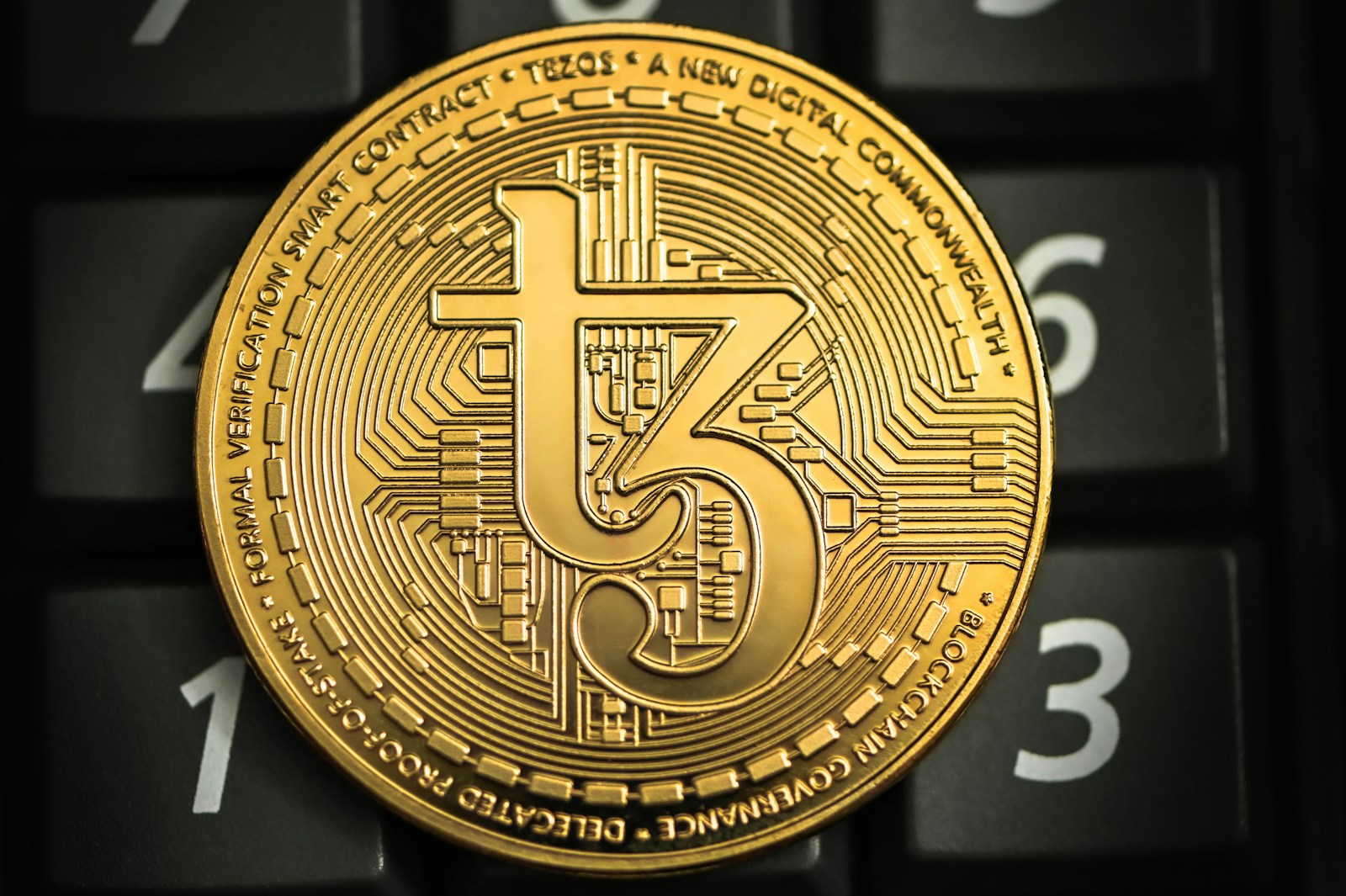
Buying crypto in Hong Kong has become a hot topic, but the process involves many considerations. From legality and regulation, to HKMA and SFC supervision, to AML/CTF regulations and tax considerations, investors need to fully understand the relevant regulations. In addition, choosing the right trading platform and opening a trading account are also key steps.
In this article, we'll cover all aspects of buying crypto in Hong Kong in detail, including payment options, transaction security practices, local communities and resources, and answers to frequently asked questions. We will also look at future trends to help you make informed investment decisions in this rapidly changing market.
Legality and Regulation of Cryptocurrency Purchases in Hong Kong
Buying cryptocurrency is a legal activity in Hong Kong, but that does not mean it is completely unregulated. Hong Kong's financial regulators, such as the Hong Kong Monetary Authority (HKMA) and the Securities and Futures Commission (SFC), have clear regulations on cryptocurrency trading and related activities.
The role of the Hong Kong Monetary Authority (HKMA)
The Hong Kong Monetary Authority (HKMA) is primarily responsible for regulating financial institutions, including banks and payment systems. While the HKMA does not have direct regulatory oversight of cryptocurrencies themselves, it does provide guidance on payment systems and related financial services involved in cryptocurrency transactions.
Securities and Futures Commission (SFC) Code
The SFC strictly regulates activities involving Security Tokens. According to SFC regulations, any activity involving security tokens, such as issuance, trading or management, requires a corresponding license. These regulations ensure that investors' interests are protected.
License Type
| License Type | Scope of Application |
|---|---|
| Category 1 | securities trading |
| Category 4 | Advising on securities |
| Category 9 | Asset Management |
Anti-Money Laundering and Counter-Terrorist Financing (AML/CTF) Requirements
Hong Kong has stringent anti-money laundering and counter-terrorism financing regulations. All platforms and service providers involved in cryptocurrency trading are required to comply with these regulations, which include customer identification verification (KYC) and continuous monitoring of trading activities. These measures are designed to prevent illegal activities and protect the integrity of the market.
Tax Considerations
Although there are no specific tax requirements for cryptocurrency trading in Hong Kong, general tax principles still apply. For example, if you make profits as a result of trading cryptocurrencies, these profits may be considered taxable income. It is advisable to consult a professional tax advisor before engaging in large-scale transactions.

<lang=”zh-Hant”>
Introduction to commonly used cryptocurrency trading platforms
Introduction to commonly used cryptocurrency trading platforms
Binance
Binance is one of the largest cryptocurrency trading platforms in the world, offering trading pairs for multiple cryptocurrencies. The platform is known for its high liquidity and low transaction fees, and supports multiple languages, including Chinese. Users can trade via web, desktop and mobile apps. Binance also offers a wide range of financial products, such as futures and savings accounts, to meet the needs of different investors.
Coinbase
Coinbase is another popular cryptocurrency trading platform, especially in the US and Europe. Known for its security and ease of use, the platform is especially suitable for newcomers to cryptocurrency trading, and Coinbase supports a variety of payment methods, including bank transfers and credit card payments, and offers an intuitive user interface. Coinbase also offers a wealth of educational resources for those who want to learn more about cryptocurrencies.
OKEx
OKEx is a Hong Kong-based cryptocurrency trading platform that offers a wide range of trading pairs and financial products. The platform supports spot, contract, and leveraged trading, and features a powerful trading engine and efficient customer support, as well as multiple security measures, such as double authentication and cold wallet storage, to ensure the safety of user funds.
Huobi
Huobi is another well-known cryptocurrency trading platform based in Singapore, but with a large number of users in Hong Kong. The platform offers a wide range of trading pairs and a variety of financial products such as lending and wealth management products.Huobi's trading interface is user-friendly and supports multiple languages. The platform also offers 24/7 customer support to ensure that users receive immediate help during the trading process.
Bitfinex
Bitfinex is a professional cryptocurrency trading platform targeting high-frequency traders and institutional investors. The platform offers highly liquid trading pairs and a variety of advanced trading tools such as API access and algorithmic trading, Bitfinex also provides margin trading and lending services to meet the needs of different users. The platform is known for its high level of transparency and security measures, attracting a large number of professional investors.
How to Open a Cryptocurrency Trading Account in Hong Kong
The process of opening a cryptocurrency trading account in Hong Kong is not complicated, but there are certain steps and regulations that need to be followed. Below is a detailed guide to help you through the process.
Choose the right trading platform
First of all, you need to choose a suitable cryptocurrency trading platform. In Hong Kong, common trading platforms include Binance, Coinbase, Kraken and OKEx. Each of these platforms has its own advantages, so you can choose the right one according to your needs.
| Platform name | Strengths | Disadvantages |
|---|---|---|
| Binance | High trading volume and variety of currencies | Complicated interface |
| Coinbase | Easy to use and safe | Higher Handling Fee |
| Kraken | High security and low cost | Average customer support |
| OKEx | Diversified products with high trading volume | Regulatory Risk |
Registered Account
After selecting a trading platform, you will need to register your account with the platform. The registration process usually involves providing an email, setting up a password and verifying your identity. Most platforms will require you to undergo KYC (Know Your Customer) verification, which usually requires you to provide proof of identity (e.g. passport or ID card) and proof of address (e.g. utility bill).
Setting up double validation
To ensure account security, it is recommended to enable double authentication (2FA). This usually involves generating a one-time verification code using a mobile application such as Google Authenticator or Authy. 2FA can effectively prevent unauthorized logins and increase account security.
Connecting to Payment Methods
After completing account registration and verification, you will need to connect to a payment method in order to make a transaction. Common payment methods include bank transfer, credit card and e-wallet (e.g. PayPal). Payment methods supported by different platforms may vary and you will need to set them up according to the requirements of the platform.
Start Trading
After completing the above steps, you are ready to start trading cryptocurrencies. Before trading, it is recommended to understand the market situation and formulate a reasonable trading strategy. Most platforms provide real-time market data and trading charts, you can use these tools for analysis.

Payment Options for Cryptocurrency Purchases
Bank Transfer
In Hong Kong, bank transfer is one of the most common payment methods for purchasing cryptocurrencies. Many local and international cryptocurrency trading platforms accept bank transfers as payment. The advantages of using bank transfers are that they are highly secure and usually do not incur high handling fees. However, bank transfers can take a long time to process, usually 1-3 business days to complete.
Credit and Debit Cards
Credit and debit cards are also popular choices for purchasing cryptocurrencies. The advantage of this payment method is that the transaction is fast and can usually be completed instantly. However, purchasing cryptocurrencies using a credit or debit card may incur higher fees and some issuing banks may impose restrictions on such transactions. Therefore, it is advisable to check your bank's policies before using this method.
Electronic Wallet
E-wallets such as PayPal, Skrill and Neteller are also increasingly being used to purchase cryptocurrencies. These platforms offer convenient and fast payment methods and often support multiple currencies. Another advantage of using e-wallets is a higher level of privacy, as there is no need to provide direct bank account or credit card information. However, e-wallet fees can be high and rates vary widely between platforms.
Cash Payment
In Hong Kong, cash payments are also a viable way to purchase cryptocurrency. This method is usually conducted through peer-to-peer (P2P) trading platforms, where buyers and sellers can either transact face-to-face or make cash deposits through automated teller machines (ATMs). The advantage of this method is the anonymity of the transaction, but it is important to note that cash transactions are risky and you should choose a trusted platform and counterparty.
Third-party payment platforms
In addition to the above methods, consumers in Hong Kong can also use third-party payment platforms such as Alipay and WeChat Pay to purchase cryptocurrencies. These platforms offer convenient payment methods and are particularly suitable for users who are accustomed to using these tools. However, not all cryptocurrency trading platforms support these payment methods, so special attention should be paid when choosing a trading platform.
Best Practices for Secure Transactions
Choose a reliable trading platform
When buying cryptocurrency in Hong Kong, choose aReliable trading platformIt is the first step to ensure the security of your transactions. It is advisable to choose platforms that are recognized by regulators, such as Binance, Coinbase, Kraken, and others. These platforms usually have strict security measures in place to protect users' money and personal information.
Enable two-factor authentication (2FA)
Dual Authentication (2FA) is an additional layer of security that prevents unauthorized access. With 2FA enabled, even if a hacker obtains your password, they will still need your cell phone or other authentication device to log into your account.
Regularly updated passwords
utilizationStrong passwordRegularly updating your password is essential to keep your account secure. Strong passwords should contain upper and lower case letters, numbers and special characters, and avoid personal information that can be easily guessed.
Using cold wallets to save large amounts of money
Cold wallets (e.g. hardware wallets or paper wallets) are not connected to the Internet and are therefore more difficult to hack. It is recommended to store most of your funds in cold wallets and only a small amount in the hot wallets of your trading platform for daily transactions.
Keep software and equipment up to date
Ensuring that your computer, cell phone and wallet software is always up-to-date will prevent known security vulnerabilities from being exploited. Regularly updating your operating system and applications is also an important step in staying safe.
Watch out for phishing attacks.
Phishing attacks are one of the most common ways that hackers use to obtain your login information through spoofed emails or websites. Be sure to double-check every email you receive and every website you visit to make sure they are from a legitimate source.
Monitor Account Activity
Regularly check your trading account activity to detect any suspicious operations in a timely manner. If you find any abnormality, you should immediately contact the customer service of the trading platform and take appropriate measures.
Diversification
Don't put all your money in one platform or one cryptocurrency. Diversification reduces risk and avoids significant losses due to problems with a single platform or cryptocurrency.
Comparison Table of Common Safety Measures
| security measure | describe | Advantages | Disadvantages |
|---|---|---|---|
| Dual Authentication (2FA) | Additional Validation Steps Required | Improve account security | Additional equipment required |
| cold wallet | Non-Internet Connected Wallet | Preventing Hacking Attacks | Inconvenient for daily transactions |
| Regularly updated passwords | Use strong passwords and change them regularly | Reduce the risk of password cracking | Need to memorize multiple passwords |
| Diversification | Diversify funds across multiple platforms and cryptocurrencies | Risk Reduction | More complex to manage |
Hong Kong Cryptocurrency Community and Resources
Local Community and Communication Platform
Hong Kong has an active and diverse cryptocurrency community that provides a wealth of networking and learning opportunities for investors and enthusiasts. Many local communities utilize online forums, social media groups, and physical events to facilitate communication. For example, Hong Kong'sMeetupThere are several cryptocurrency-focused groups on the platform that host regular talks and workshops.
Educational Resources and Training Organizations
With the popularity of cryptocurrency, Hong Kong's educational resources are becoming increasingly rich. Many universities and professional organizations have started to provide relevant courses and training. For example, the Hong Kong University of Science and Technology and the University of Hong Kong have both offered professional courses on blockchain and cryptocurrency. In addition, organizations likeBlockchain AcademySuch professional training organizations also provide comprehensive learning resources for both beginners and professionals.
Media and Information Sources
Staying abreast of the latest market dynamics and technology trends is crucial for cryptocurrency investors. There are a number of media platforms in Hong Kong that specialize in cryptocurrency and blockchain technology, such asBlockTempoandCoinDeskThese platforms provide up-to-date news, analyst reports and market updates to help investors make informed decisions. These platforms provide up-to-the-minute news, analyst reports and market updates to help investors make informed decisions.
Legal & Compliance Resources
When trading cryptocurrencies in Hong Kong, it is important to understand the relevant legal and compliance requirements. The Securities and Futures Commission (SFC) in Hong Kong provides detailed guidelines and regulations to help investors understand how to operate legally and compliantly. Investors can visitHong Kong Securities and Futures CommissionGet the latest regulatory information and compliance guides on our official website.
Technical Support and Developer Community
Hong Kong also has a wealth of resources for tech enthusiasts and developers. A number of technology communities and developer groups regularly organize hackathons, workshops and technology sharing sessions. For example, Hong Kong'sDevPostThere are many blockchain and cryptocurrency related events on the platform, providing developers with opportunities to showcase and network.
Professional Service Organizations
In addition to education and technical support, there are many professional services organizations in Hong Kong that provide advisory and support services. For example, professional law firms and accounting firms can provide legal and tax advice to cryptocurrency investors to ensure that their operations are compliant with the law and maximize returns.
FAQs for Newbies Buying Cryptocurrencies
1. what is cryptocurrency?
Cryptocurrency is a digital asset based on blockchain technology, utilizing theCryptographyTo secure transactions and control the creation of new units. Bitcoin is one of the first and best known cryptocurrencies.
2. How to choose the right cryptocurrency trading platform?
When choosing the right trading platform, you should consider the following factors:
| considerations | describe |
|---|---|
| safety | Whether the platform has strong security measures such as double authentication and cold wallet storage. |
| Handling Fee | Whether the transaction and withdrawal fees are reasonable. |
| User Interface | Whether the platform is easy to use, especially for newcomers. |
| Customer Support | Whether timely and effective customer support is provided. |
3. Is it legal to buy cryptocurrency in Hong Kong?
It is legal to buy and hold cryptocurrencies in Hong Kong, but related trading activities are regulated by the Hong Kong Monetary Authority (HKMA) and the Securities and Futures Commission (SFC). Investors should be aware of and comply with the relevant regulations.
4. How can I secure my Cryptocurrency assets?
Best practices for securing cryptocurrency assets include:
- utilizationHard walletto store large amounts of cryptocurrency.
- EnablingDual Verification(2FA) to increase account security.
- Update your password regularly and use a strong password.
- Avoid transactions on public Wi-Fi.
5. Which cryptocurrency should I invest in?
Which cryptocurrency to invest in depends on one's risk tolerance and investment objectives. Bitcoin and Ethereum are more stable and popular options, but others such as Ripple and Litecoin also have potential.
6. How do I start buying cryptocurrencies?
The steps to start buying cryptocurrency are as follows:
- Choose and register with a trusted cryptocurrency trading platform.
- fulfillmentKYC(Know Your Customer) Verification.
- Funds are deposited and can usually be paid by bank transfer or credit card.
- Select the desired cryptocurrency and purchase it.
7. What are the fees for trading Cryptocurrency?
Trading cryptocurrency usually requires the following fees:
| Fee Type | describe |
|---|---|
| Transaction Fee | A fee, usually a percentage of the transaction amount, to be paid for each transaction. |
| Withdrawal Fee | The fee you pay when withdrawing funds from the trading platform to your bank account or wallet. |
| Deposit Handling Fee | Some platforms also charge a handling fee for deposits. |
8. What are the risks associated with cryptocurrency transactions?
Cryptocurrency transactions involve the following risks:
- Market volatility is high and prices may fluctuate dramatically.
- There is a risk of the platform being hacked or bankrupted.
- Changes in regulatory policy may affect trading activities.
- Risk of theft or loss of personal account keys.
Future Trends and Investment Opportunities in Cryptocurrency
Global Regulatory Trends
With the rapid development of the cryptocurrency market, governments and regulators in various countries are beginning to pay close attention and formulate relevant laws and regulations. Regulators in Hong Kong are also actively promoting the compliance of the cryptocurrency market, which will help enhance the transparency and security of the market. In the future, more regulatory measures will be introduced, which will provide greater protection to investors.
Institutional Investor Participation
In recent years, more and more institutional investors have begun to enter the cryptocurrency market, such as large hedge funds, investment banks, and corporate asset management companies. The participation of these institutions has not only brought huge capital inflows, but has also increased the stability and maturity of the market. For individual investors, this is an important signal that the cryptocurrency market is gradually being accepted by the mainstream financial markets.
The Rise of Decentralized Finance (DeFi)
Decentralized Finance (DeFi) is a key trend in the cryptocurrency space. deFi apps utilize blockchain technology to provide traditional financial services such as lending, trading, and insurance without the need for intermediaries. This model not only improves the efficiency of financial services, but also reduces costs. For investors, DeFi offers diversified investment opportunities and higher yield potential.
Development of Stabilized Currency
Stablecoins are cryptocurrencies that are pegged to fiat currencies and are designed to reduce price volatility. As the market demand for stablecoins increases, more and more stablecoin projects have been launched, such as USDT, USDC, etc. Stablecoins not only provide a stable means of storing value in transactions, but also play an important role in cross-border payments and asset transfer. Stablecoins not only provide a stable means of storing value in transactions, but also play an important role in cross-border payments and asset transfers.
Expansion of Blockchain Technology Applications
Blockchain technology, as the foundation of cryptocurrency, is being widely used in various industries, such as supply chain management, healthcare, and the Internet of Things. The expansion of these applications will further drive the popularity and value growth of cryptocurrencies. Investors can focus on projects that have innovations and breakthroughs in the application of blockchain technology, which have the potential to bring lucrative returns.
Investment Opportunities and Risk Management
As the cryptocurrency market continues to evolve, so do the investment opportunities. However, the high volatility and uncertainty of the cryptocurrency market still exists. Therefore, investors should adopt a prudent attitude and good risk management when making investments. For example, diversification, setting stop-loss points and regular portfolio reviews are all effective risk management strategies.
Overall, the future of the cryptocurrency market is full of opportunities and challenges. As technology advances and the market matures, there will be more opportunities for investors to participate and profit. However, investors should remain vigilant and take appropriate risk management measures to ensure the safety and stable growth of their investments.
<lang=”zh-Hant”>
List of Frequently Asked Questions - Buy crypto in Hong Kong
FAQs for Newbies Buying Cryptocurrencies
1. what is cryptocurrency?
Cryptocurrency is a digital asset based on blockchain technology, utilizing theCryptographyTo secure transactions and control the creation of new units. Bitcoin is one of the first and best known cryptocurrencies.
2. How to choose the right cryptocurrency trading platform?
When choosing the right trading platform, you should consider the following factors:
| considerations | describe |
|---|---|
| safety | Whether the platform has strong security measures such as double authentication and cold wallet storage. |
| Handling Fee | Whether the transaction and withdrawal fees are reasonable. |
| User Interface | Whether the platform is easy to use, especially for newcomers. |
| Customer Support | Whether timely and effective customer support is provided. |
3. Is it legal to buy cryptocurrency in Hong Kong?
It is legal to buy and hold cryptocurrencies in Hong Kong, but related trading activities are regulated by the Hong Kong Monetary Authority (HKMA) and the Securities and Futures Commission (SFC). Investors should be aware of and comply with the relevant regulations.
4. How can I secure my Cryptocurrency assets?
Best practices for securing cryptocurrency assets include:
- utilizationHard walletto store large amounts of cryptocurrency.
- EnablingDual Verification(2FA) to increase account security.
- Update your password regularly and use a strong password.
- Avoid transactions on public Wi-Fi.
5. Which cryptocurrency should I invest in?
Which cryptocurrency to invest in depends on one's risk tolerance and investment objectives. Bitcoin and Ethereum are more stable and popular options, but others such as Ripple and Litecoin also have potential.
6. How do I start buying cryptocurrencies?
The steps to start buying cryptocurrency are as follows:
- Choose and register with a trusted cryptocurrency trading platform.
- fulfillmentKYC(Know Your Customer) Verification.
- Funds are deposited and can usually be paid by bank transfer or credit card.
- Select the desired cryptocurrency and purchase it.
7. What are the fees for trading Cryptocurrency?
Trading cryptocurrency usually requires the following fees:
| Fee Type | describe |
|---|---|
| Transaction Fee | A fee, usually a percentage of the transaction amount, to be paid for each transaction. |
| Withdrawal Fee | The fee you pay when withdrawing funds from the trading platform to your bank account or wallet. |
| Deposit Handling Fee | Some platforms also charge a handling fee for deposits. |
8. What are the risks associated with cryptocurrency transactions?
Cryptocurrency transactions involve the following risks:
- Market volatility is high and prices may fluctuate dramatically.
- There is a risk of the platform being hacked or bankrupted.
- Changes in regulatory policy may affect trading activities.
- Risk of theft or loss of personal account keys.
Disclaimer: The contents of this article are for informational purposes only and should not be construed as any form of promotion, investment advice, or invitation, solicitation or recommendation of any investment product.
The contents of this article have been reprinted.offensiveIf there is anything wrong, please contact us and we will remove it immediately, thank you.
Readers should make their own assessment and seek professional advice.





